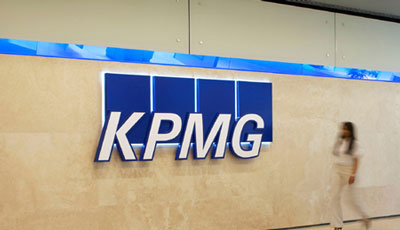Global Index Ranks Countries Best Equipped to Thrive in the Face of Unprecedented Change

KPMG International today released its 2015 Change Readiness Index (CRI), ranking 127 countries for their capacity to prepare for and respond to accelerating change brought about by everything from natural disasters and economic and political shocks, to long term trends such as demographics, and new technologies.
Produced in partnership with Oxford Economics, the CRI is the only global study of its kind, designed for use by both the public and private sectors to better inform decisions on policy making and investments. The release of the CRI comes as United Nations member states prepare to adopt Sustainable Development Goals in September that will help guide policies for the next 15 years.
Revealing Insights into Countries’ Capacity for Change
The 2015 CRI provides unique and in some cases unexpected insights with smaller, less wealthy and resource-endowed countries often outperforming larger economies on key measures of change readiness.
“The CRI shows that there are no absolutes when it comes to change readiness,” said Timothy Stiles, Global Chair for International Development Assistance Services (IDAS), KPMG International. “A country’s wealth is certainly a contributing factor, but many countries compensate for lesser wealth with robust governance, a strong social foundation, and a positive business environment.”
“A revealing trend from this year’s CRI is that countries with higher scores for more inclusive economies tend to perform better in the Index, while conversely, income inequality tends to be associated with low change readiness,” noted Stiles. “In fact the nine countries ranked highest for inclusive growth are all in the top 15 of the Index. It sends a clear message that policies promoting inclusive growth can help countries be more equipped to manage inevitable change.”
Top Ranked Countries for Change Readiness
The CRI was expanded to 127 countries for 2015, from the 90 countries included in the study’s 2013 ranking. In the 2015 Index, Singapore repeated its number one ranking from 2013, while Northern and Western European countries dominated the top 20 overall:
|
|
*Countries that are new to the 2015 CRI
Lower Income Countries That Stand Out
A number of lower income countries perform well in the CRI, demonstrating the benefits of effective policy and investment in compensating for lower levels of wealth. India was one of the strongest movers from the 2013 CRI (up 17 places based on that ranking), which the Index shows is a reflection of a much improved business environment. The Philippines, Indonesia and Cambodia are lower-income countries that all ranked in the top 50 in the Index.
“The Philippines in particular exemplifies the importance of change readiness,” said Trevor Davies, Executive Director for the IDAS Center of Excellence, KPMG International. “Much of the country was devastated by Typhoon Haiyan in 2013, but the Philippines’ effective policies and institutions have enabled it to persevere, and it is projected to be one of the world’s fastest growing economies in 2015. Other countries, such as Cambodia and Rwanda, reflect areas of progress that have been realized through the efforts of the global development community working effectively in concert with national and local governments to effect positive change.”
Determining a Country’s Change Readiness
In assessing capability for change readiness, the CRI measures a country’s capacity in three areas:
- Enterprise capability – a country’s business environment
- Government capability – including fiscal, regulatory and security aspects
- People and civil society capability – civil society institutions, inclusiveness of growth, education, health and technology access
“The CRI is designed so that users can drill down in each of the pillars for an in-depth picture of a country’s performance for each capability, gaining an understanding of why some nations perform better than others, and what could be done to close the gap,” said Adrian Cooper, CEO of Oxford Economics. “Change readiness is complex, and the CRI enables governments, NGOs and private investors to go beyond headlines, unravel this complexity and ultimately make more informed decisions.”
Source: KPMG – Global Index Ranks Countries Best Equipped to Thrive in the Face of Unprecedented Change





























